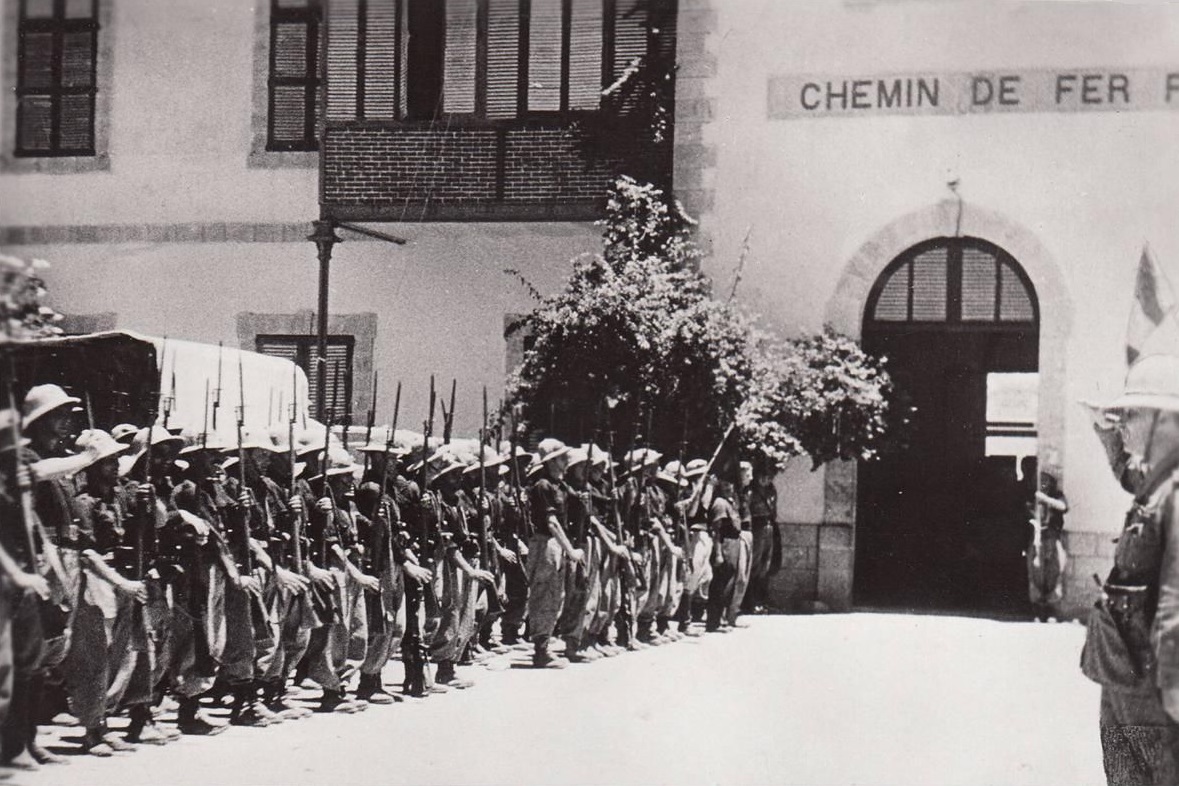Meanwhile, the Italians struck in Ethiopia, where an independent state had precariously maintained itself largely because its imperial neighbors—Britain, France, and Italy—would neither agree to divide it nor let any one of the three swallow it whole.
In 1934 a frontier incident occurred at a desert post in Italian Somaliland—or in Ethiopia, for both sides claimed the site. France and Britain were ready to appease Italy, partly because they hoped to align Mussolini with them against Hitler. Over the protests of the Ethiopian emperor, Haile Selassie (1892-1975), they offered Mussolini generous economic concessions in Ethiopia. But since Ethiopia was a member of the League, the French and the British had to insist that its formal independence be observed. This Mussolini would not accept, and in October 1935 his troops invaded Ethiopia. Early in 1936 the king of Italy acquired the coveted title of emperor of Ethiopia.
The League of Nations had already formally condemned the Japanese aggression in Manchuria and the German denunciation of the disarmament clauses of the Treaty of Versailles. In 1935 it promptly declared that, by invading Ethiopia, a League member, Italy had violated its obligations under the Covenant of the League. Now the League made the momentous decision to move from words to deeds.
This decision was supported by most of its members and was urged on by the British, the French, and most movingly in a speech delivered to the League in Geneva by Haile Selassie, speaking in Amharic, the language of Ethiopia, while Italian fascists hissed and booed. On October 11, 1935, fifty-one member nations of the League voted to invoke Article 16 of the League Covenant, which provided for economic sanctions against a member resorting to war in disregard of its commitments.
But the sanctions against Italy failed. There were loop-holes; oil, for instance, was not included in the list of articles barred from commerce with Italy, which had only meager stockpiles of this vital war material. There was much recrimination among members of the League over what articles should be placed on the prohibited list and over the British and French failure to check Italian movements of troops and munitions through the Suez Canal, which Britain then controlled.
Germany was no longer in the League and was wholly unaffected by its decisions. No major power applied sanctions rigorously, so that the effectiveness of economic sanctions was not really tested. The League was hardly a factor in the increasing tensions, and no one was surprised when Italy, like Japan and Germany, withdrew from the League in December 1937.

